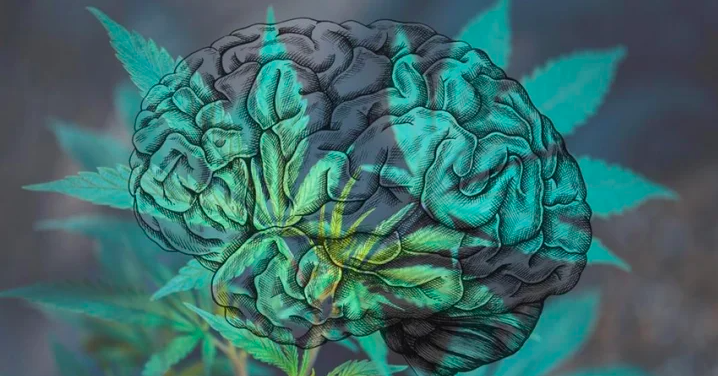Image via
A team of researchers from Australia and the Netherlands just published a new study that further debunks the myth that regular cannabis use causes brain damage.
The new study, which was just published in the Addiction Biology journal, explores whether long-term cannabis use can damage the integrity of white matter in the brain. Researchers know relatively little about the role of white matter, but now believe that damage or dysfunction to this part of the brain could lead to cognitive impairment, multiple sclerosis, Alzheimer’s, and depression.
Most research on long-term drug abuse has focused on grey matter, which is associated with muscle control, senses, and higher cognitive function, but a growing number of researchers are now investigating how substance use can affect white matter. A study from 2019 suggests that regular use of certain drugs, especially alcohol, opiates, and cocaine can decrease the coherence of white matter, potentially causing cognitive decline.
Earlier research into the effects of cannabis on white matter integrity has been largely inconclusive. Some studies did find a link between cannabis use and white matter damage, but researchers failed to take into account whether subjects were using other drugs or suffering from pre-existing mental health issues.
In the present study, researchers used diffusion tensor imaging (DTI) to measure the white matter integrity of 39 daily cannabis users and 28 non-users. To avoid the confounding factors of earlier research, the study authors ensured that all subjects in the study were closely matched in terms of their age, gender, mental health, and alcohol or tobacco use.
A full analysis revealed that cannabis users’ white matter was just as healthy as those who abstained. “White matter microstructure did not differ between cannabis users and controls and did not covary with recent cannabis use, dependence severity, or duration of use,” the study authors concluded. “These findings suggest that long-term near-daily cannabis use does not necessarily affect white matter microstructure.”
Many of the anti-cannabis myths commonly circulated by prohibitionists and concerned parents are founded on older studies that are either outright flawed or have been misinterpreted by the media. Researchers have recently disproved older studies suggesting that teen pot use can lower IQ, cause brain damage, or decrease motivation. Several studies have also concluded that the deficits seen among some teen drug users are actually caused by alcohol abuse, not weed.
Scientists have debunked a number of other weed myths in the past couple of years. Older studies have found correlational links between cannabis use and mental health issues like depression and schizophrenia, but more comprehensive research has demonstrated that cannabis does not increase the risk of mental illness. Researchers now believe that people who are struggling with mental health are in fact more likely to use cannabis or other drugs as a form of self-medication, and not the other way around.











